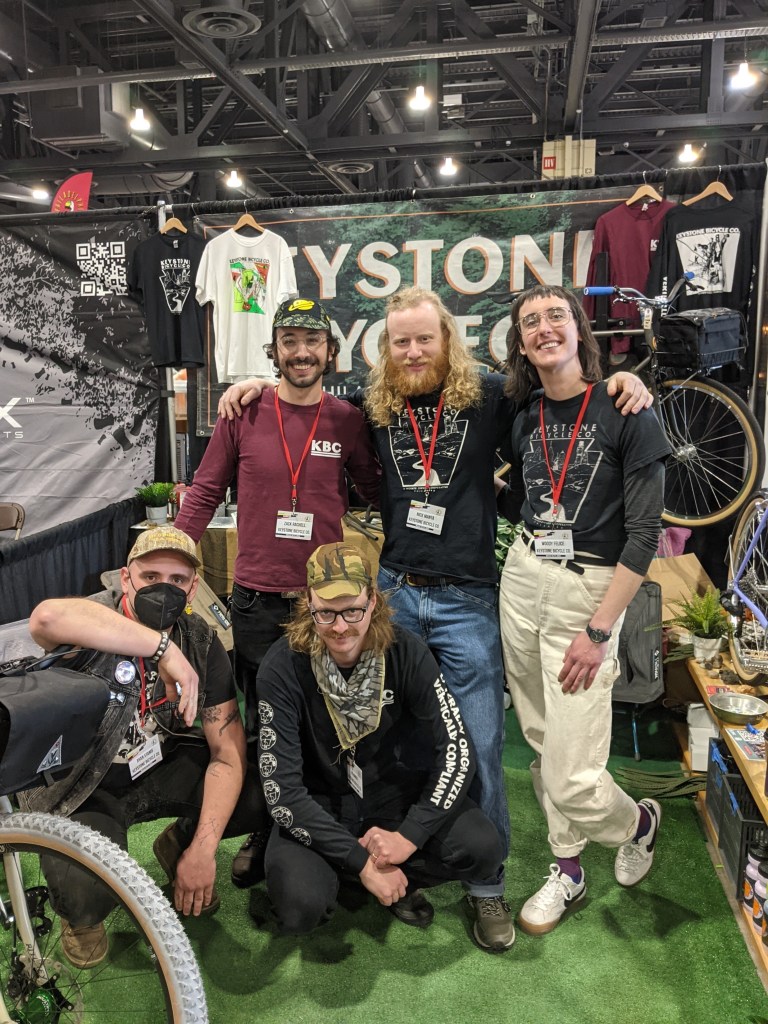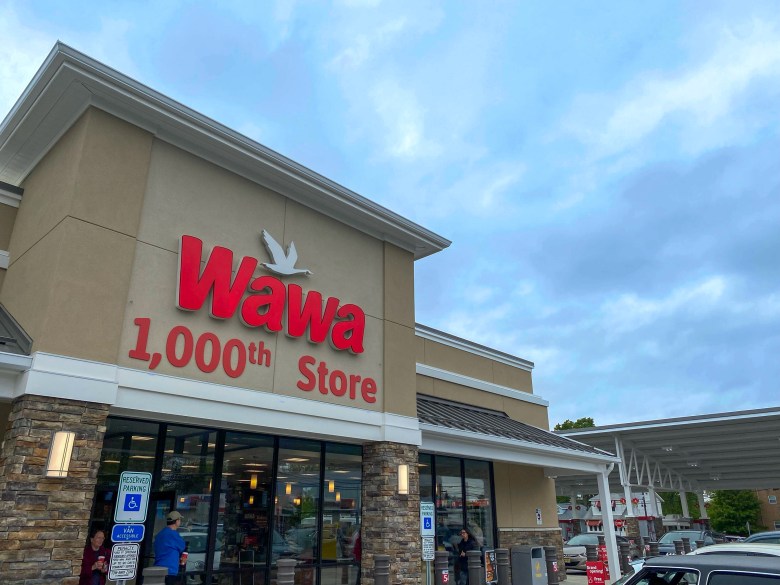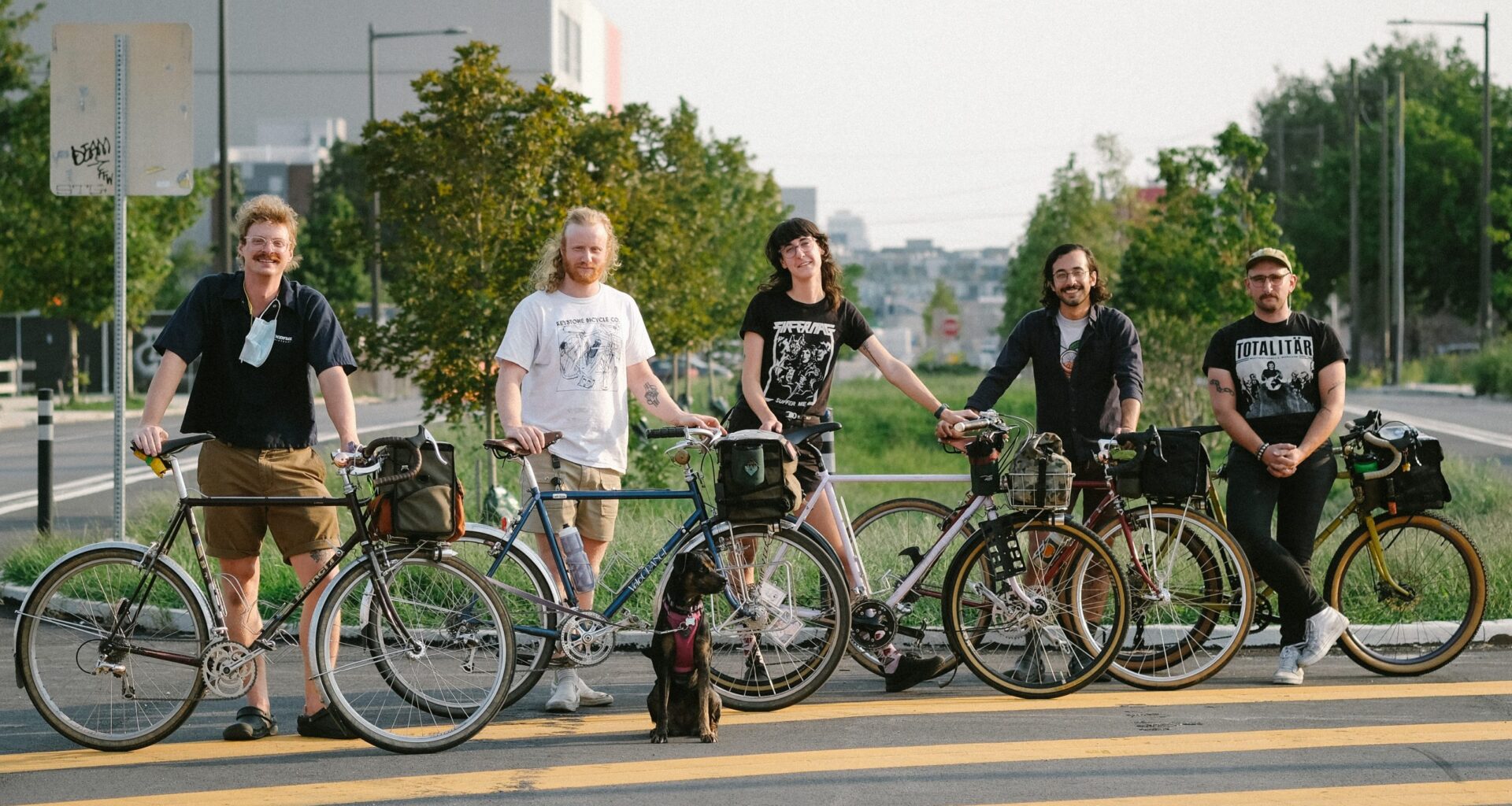It’s a challenging time for bike shops right now, said Zach Rachell, of Keystone Bike Co., a worker-owned cooperative in South Kensington.
Rachell, who is a worker-owner, credits the unique ownership structure as one of the company’s biggest strong suits.
“A lot of bike shops have been closing the last couple of years,” he said. “My personal feeling is that this kind of structure is what has helped us navigate the challenges of 2020, and even the tumultuous market that we’re in right now.”
Keystone Bike Co. was started in 2020. Woody Felice, another worker-owner, explained the five founding worker-owners are still the store’s operating employees.
“We practice democratic decision making, as do most cooperatives, and operate with an operating agreement,” she said. “We have an agreed understanding that we all have a control and say in the business.”
The many kinds of employee-owned businesses
Keystone Bike is not alone. There are more than 300 employee-owned companies in Pennsylvania. Philadelphia icon Wawa, for instance, is owned partially by its employees. And so is Wawa rival Sheetz, Voodoo Brewing Co., Hoss’s Family Steak & Sea House and several major engineering firms, defense contractors and other companies.
There are several structures for employee-owned companies, said Kevin McPhillips, the CEO of PaCEO – a nonprofit that educates about employee-owned companies.
The model that Keystone Bike Co. uses is a worker cooperative, where the business is equally owned by the employees there.
“It’s run democratically, meaning that if there are decisions to be made about the business, they’re made as a group,” McPhillips said. “It doesn’t mean you’re voting every day to decide whether to open the doors up in the morning, but if there’s something that affects the business, financially or organizationally, then everybody would sort of weigh in on that.”
Felice explained the structure was helpful for this particular industry. She said bike mechanics can sometimes experience struggles at traditional bike stores.
“It’s hard to make a living as a bike mechanic,” she said. “And sometimes, bike shop owners don’t work there full time. So, they’re just someone that’s getting a paycheck and they pay their workers. And so we felt that if we all were owners and had a stake in the business, it was more likely that we would be able to make this sustainable for the long term, both for the shop we were working at, and also for our own livelihoods.”
Worker cooperatives aren’t the only model of business that employee-owned companies can use.
Which businesses make good ESOPs?
Another popular employee-owned company option, McPhillips said, is an Employee Stock Ownership Plan (or ESOP).
“A business owner could sell some or all of their business to their employees,” he said. “Employees pay nothing. Instead, the business takes a loan from a bank to pay off the owner, the federal government and the state of Pennsylvania turn around and they say, ‘If you do this, you never have to pay taxes again on whatever portion of the business is owned by the employees.’ The tax savings pay off the bank, and after a handful of years, the business has all this extra cash.”
One newer form of employee-owned businesses that is already well-established in other countries is an employee ownership trust, or EOT. With this, the current owner of a business decides to sell the company to employees over time, McPhillips said, rather than selling it to a third party, as the owner transitions out of the business.
“It’s a way of making sure that, particularly ‘Main Street businesses,’ don’t get boarded up,” McPhillips said. “They stay within the community.”
There are benefits to implementing any of these frameworks – increased employee productivity, more secure retirement savings and keeping businesses in the state, McPhillips said. There are some drawbacks as well.
He said employee ownership doesn’t benefit businesses that are looking to buy companies and quickly turn around to sell them, or businesses that are interested in keeping a company for themselves.
“The bulk of businesses are bought either by venture capitalists or by strategic buyers, the competitors,” he said. “There’s nothing in employee ownership that benefits either of those groups.”
Additionally, there could be other issues – such as dilution of shares from many people participating, costs and logistics in setting up these companies, and lack of employee understanding and participation.
While McPhillips said the structure doesn’t work for everyone, he explained it can be very successful for those who invest in the structure.
“Employee-owned businesses, on average, are 8% to 12% more productive,” he said. “And wages in individuals 24 to 36 are 33% higher, and nobody knows about it. This is why we exist today, to try to teach people about this.”
McPhillips said employee-owned companies also tend to have higher employee retention, increased tax benefits and increased profits.
Unique benefits
For Felice, having a worker-owned structure at Keystone Bike Co. feels like the right path for success.
“[Positive interactions] are especially easier for us to focus on when everyone is invested in the business,” she said. “It is important to us that people have a good experience here and are happy, and that we’re happy, and that the people that come in are happy, if we can make that happen.”
 The worker-owners of Keystone Bicycle Co. (Courtesy of Keystone Bicycle Co.)
The worker-owners of Keystone Bicycle Co. (Courtesy of Keystone Bicycle Co.)
She said the shop’s structure doesn’t just help the workers, it also positively impacts the surrounding community.
“I think part of being in a worker-owned cooperative is that the connections with community are kind of written into our operating agreement,” she said. “Community is a top priority, so we’ve made sure to prioritize those things early on.”
Ashleigh Newlin works with Chartwell, a Philly-based financial advisory firm with a specific focus on employee-owned companies.
In her experience, she said, those who run employee-owned companies are looking to build a strong company culture through retirement wealth, among other things.
“All different kinds of companies have ESOPs, small and large companies, but the one thing in common is that they want to build retirement wealth for their employees and not just the leaders, but everyone in the company,” she said.
Convenience food rivals Wawa and Sheetz, which both have roots in Pennsylvania, are employee-owned companies. Newlin explained that this means all full-time employees are partial owners of the company and have a share in the business.
 The 1000th Wawa store in Oaklyn, NJ. (Hillary Kissinger/WHYY)
The 1000th Wawa store in Oaklyn, NJ. (Hillary Kissinger/WHYY)
“Employee-owned companies are more successful and they are more resilient in tough economic environments like in COVID, a lot less layoffs were needed at employee-owned companies,” she said. “It really helps with the culture and just helps employees want to work hard because they know it’s actually going to benefit them in retirement.”
Recent research from the National Center for Employee Ownership shows that certain ESOPs, the most popular kind of employee-owned business, have a quit rate that is nearly one-third of the national average and that these companies have more than double the retirement savings of their non-ESOP counterparts.
Despite this, there are certain benefits that may make employee ownership more attractive to certain companies. In the above data, the ESOPs measured were “S corporations,” meaning they have a specific tax structure that is more beneficial for small businesses and protects owners from liability. This structure would not be the same for larger companies.
Newlin said there are ways to make employee ownership work for companies of different shapes and sizes.
“There is just a lot of flexibility in it,” she said. “It can work for a lot of different companies and I think people on the right and on the left politically can support it and get behind it. It really is a way to make capitalism work for everyone.”
ESOP foodies
There are also many employee-owned, food-related companies throughout the U.S. In Pennsylvania, there are several, including Redner’s Markets, Hoss’s Family Steak & Seafood House and Kennie’s Marketplace.
A 2022 study by NCEO compared food-related ESOP companies with non-ESOP counterparts and found that there were fewer layoffs, fewer workers quitting and better benefits offered at the ESOP companies.
There are over 300 ESOP companies in Pennsylvania alone, and there are also businesses with other types of employee-ownership models.
For Rachell and Felice, they are excited to continue using their employee-owned company model to create a positive experience for others coming into their adventure-oriented bike shop.
“When somebody walks into the shop, people will often comment and say, ‘Wow, I wasn’t expecting this to be a positive experience,’” Rachell said. “In the course of the last five years, something that really helped us grow in not only our customer base but our presence in Philadelphia and in this bike scene, is being nice.
“Again, that sounds like ‘Hey, that should be every business.’ But the reality is, most people have had negative experiences when walking into a bike shop. So, we really try to be accommodating to everybody, and it certainly makes our lives easier.”
